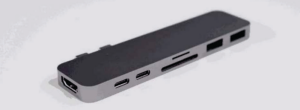by Dennis Crouch
The Federal Circuit's new decision in Sanho v. Kaijet highlights the narrowness of the pre-filing grace period (safe harbor) provision under the America Invents Act (AIA) and serves as a reminder that there are a number of patents that would have been valid under the pre-AIA patent system may no longer be valid under the current law. Sanho Corp. v. Kaijet Technology International Limited, Inc., No. 2023-1336 (Fed. Cir. July 31, 2024).

The basic holding is that the 102(a)(2)/(b)(2) safe harbor triggered by an inventor's pre-filing "public disclosure" of the invention requires that the invention be made "reasonably available to the public." Neither public uses nor private sales satisfy this requirement. This is a long post, because the issues are both important and interesting. In the end, I suggest a panel rehearing in the case because I believe that the Federal Circuit unfairly found forfeiture of key arguments whose resolution would help clarify the law.
